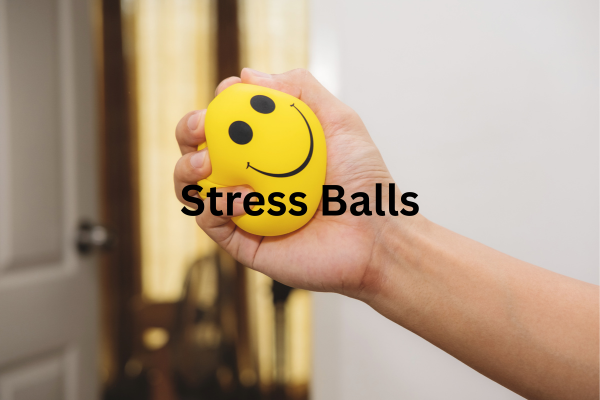Table of Contents
A SHORT AUDIO OF THE POST
Introduction
When intense anger strikes have you experienced your blood pressure rising and both your fists tightening together while your voice climbs to a fever pitch? When anger attacks us it can abruptly take over our bodies while risking harm to both personal and interpersonal relationships. A confidential method exists which allows you to stop that explosive rage from going off 🧨
The ability to switch from volcanic anger to peaceful water exists for anyone who can learn it through simple methods. The skill exists as a reality because anyone can learn to master it. This article details five fast yet efficient coping mechanisms which help people compose themselves before facing any moderate confrontations without losing self-control.
The methods described in this text will help you gain mastery over your emotions regardless of whether you face coworkers who annoy you or emotional confrontations with loved ones or just typical daily life pressures. These innovative tactics will guide you through anger to develop your cool and composed personality. 😎
.
Recognise and Acknowledge Your Anger

Identify physical signs of anger
Anger management success requires proper identification of physical anger signals. Common signs include:
Increased heart rate
Tense muscles
Clenched jaw or fists Flushed face
Rapid breathing
Early detection of these signs enables you to take preventive actions before your anger reaches high levels.
Practice self-awareness techniques
Being aware of yourself will allow you to detect and accept your anger. Try these techniques:
Mindfulness meditation Body scans
Journaling
Emotional check-ins
Technique | Benefits | How to Practice |
|---|---|---|
Mindfulness meditation | Improves focus, reduces stress | Set aside 5-10 minutes daily for quiet reflection |
Body scans | Increases bodily awareness | Mentally scan your body from head to toe, noting sensations |
Journaling | Helps process emotions | Write about your feelings and experiences regularly |
Emotional check-ins | Promotes emotional intelligence | Pause throughout the day to assess your emotional state |
Accept your emotions without judgment
Acceptance of your anger remains essential for learning how to control your emotional state. Natural emotions include anger therefore it is normal to experience it. You should recognize your anger without blaming yourself for it. When you accept your emotions it becomes possible to identify fundamental reasons while picking suitable actions. You should practice self-kindness by realizing that feeling angry does not indicate you are a bad individual. Your acceptance of emotions makes room for growth and purposeful action.
Take Step Back and Breathe

Use the 5-5-5 breathing technique
The 5-5-5 breathing
During an anger outbreak you can use 5-5-5 breathing as an effective way to control your emotions and recover your mental stability. Here’s how to practice it:
Inhale deeply for 5 seconds
Hold your breath for 5 seconds
Exhale slowly for 5 seconds
Perform this sequence three times or more to experience significant emotional transformation. This breathing method enables your physical relaxation response which decreases stress hormones and creates a state of peacefulness.
Benefits of 5-5-5 Breathing |
|---|
Slows heart rate |
Lowers blood pressure |
Reduces muscle tension |
Improves focus |
Calms racing thoughts |
Create physical distance from the trigger
Move yourself physically away from what sparks your anger response
The best way to handle your strong anger is to step away from what triggers your emotions.
Leave the surroundings right now
Move to another space whether it is indoors or outside.
Take a short walk if possible
Taking distance from your surroundings helps you with anger management.
Gain perspective on the situation
Lower your reaction strength to anger.
Take breaks to use different anger-control methods
Count to ten before responding
Taking ten seconds to count traditionally helps you control your reaction when you become angry. During this brief interval:
Use the counting numbers only when you do.
Notice your breath becoming steadier
You will begin to experience the anger fade.
Taking time to count helps you respond better than your emotional reaction would allow.
Following our anger management methods we will discover better ways to handle what made us angry.
Reframe the Situation

Look for alternative perspectives
Take a moment to think from different angles before getting angry in specific situations. Taking this step enables you to view the situation from fresh angles and often lowers your anger lens. Consider the following approaches:
Assess additional factors that may be at play in this situation.
How would someone outside the situation understand what is happening here
Reflection from their perspective would help you understand their experience.
Perspective | Possible Interpretation |
|---|---|
Your initial view | The person is deliberately trying to upset you |
Alternative view 1 | They might be having a bad day themselves |
Alternative view 2 | There could be a misunderstanding |
Alternative view 3 | External factors may be influencing their behavior |
Practice empathy towards others involved
Empathy brings strong power to manage anger successfully. When you make an effort to see things from others’ perspectives you find ways to overcome your anger.
Find better ways out of issues instead of seeing their problems
Stop thinking about past mistakes and put all your efforts into developing effective resolutions. Changing the way you think about problems eases anger and lets you reach better results.
Try these steps:
Discover the main reason why you feel angry
Brainstorm potential solutions
Evaluate each solution objectively
Select the best available choice from your solutions and begin the tools needed
Use humor to lighten the mood
Using humor helps decrease tension between people who are angry. Apply humor only when it benefits both you and the people involved. Consider these strategies:
Look for a hilarious aspect hiding in the problem area
Tell a personal example that shows your relation to this matter
Use self-deprecating humor (in moderation)
Lightening the mood should support understanding serious problems not replace their examination. Ushering you to view events in a fresher light enables better anger regulation. After reframing the situation we will look at ways to present yourself calmly and effectually.
Express Yourself Calmly and Assertively

Use “I” statements to communicate feelings
Changing verbalization during intense times to “I” messages reduces anger effectively. This method lets you study your inner feelings while preventing accusations against others. For example:
Your habit of overlooking me causes my emotional pain every time.
When people do not hear me, I experience pain.
See the following chart, which shows how to transform accusatory speech into proper “I” statements.
Accusatory Statement | “I” Statement |
|---|---|
“You’re so selfish!” | “I feel overlooked when my needs aren’t considered.” |
“You never help around here!” | “I feel overwhelmed when I have to do all the chores alone.” |
“You’re always late!” | “I feel disrespected when I have to wait for long periods.” |
Avoid accusatory language
Accusatory language often escalates conflicts. Stick to reporting facts about your workplace environment and the effects these conditions have on you. Calm communication practices lead to better relations during discussions.
You need to fully concentrate on hearing what the other person thinks
Listening carefully helps to calm frustrated situations and find solutions to conflicts.
Release Tension through Physical Activity

Engage in quick stretches or yoga poses
Anger builds up inside you, yet physical activities offer one of the most useful ways to disperse it. You can control anger by performing quick stretching or doing basic yoga poses that decrease tension and stabilize your thoughts. Try these simple exercises:
Neck rolls
Shoulder shrugs
Standing forward bend
Cat-cow pose
Physical action pushes blood throughout the body while releasing hormone chemicals that solve anger problems.
Take a short walk
Walking at a rapid pace helps you control your anger effectively. Leaving your environment creates a fresh setting and lets you benefit from it in these ways.
Clear your head
Gain perspective
Boost your mood through exercise
A brief walk from the building entrance to the block will significantly improve your emotional state.
Keep hand-held stress balls or small activities on you for sudden stress relief.
Keep hand-held stress balls or small activities on you for sudden stress relief.
Tangible items help you redirect your strong emotions when you are angry. Consider keeping these items handy:
Item | Benefits |
|---|---|
Stress ball | Relieves muscle tension |
Fidget spinner | Provides focus and distraction |
Worry stone | Offers soothing tactile sensation |
You can release anger by holding and rotating different objects until your emotion transforms into harmless physical work.
Practice progressive muscle relaxation
The technique includes step-by-step methods of making muscles tight and then letting them relax. To start this exercise, point down first and slowly tense all areas of your body, especially in your head, for 5 seconds. This practice:
Reduces overall body tension
Increases body awareness
Doing these activities eases the tension of temper when you encounter it.
Including these physical activities in your temper management strategy will help you stay calm when you face difficult situations.
My Zone
In my younger days, I wore my anger like a badge of honor. The slightest provocation was enough to ignite my temper, and I took pride in being known as a short-fused, no-nonsense guy. Looking back now, I realize how immature and energy-draining that phase was.
Everything changed after I got married. My wife Vijaya showed me what real strength looked like. In moments where I would explode, she would stay calm — not because she was indifferent, but because she had mastered her emotions. Her poise and composure made me reflect.
Observing her, I realized anger isn’t strength — it’s a loss of control. Like any other addiction, it takes over your senses and clouds your judgment. True power lies in restraint, in knowing when to speak and when to stay silent. Vijaya’s quiet strength taught me a lesson I will never forget: to respond, not react. And in that transformation, I discovered peace.
Frequently Asked Questions (FAQs)
Q1. Which method provides the most efficient strategy to control short temperament as it happens?
Deep breathing stands as the most effective approach for anger management at the moment. A deep 4-second inhale followed by a 4-second breath hold and a 6-second release through exhalation constitutes an effective technique for anger control. The technique helps your nervous system relax, which minimizes your spontaneous reactions to angry situations.
Q2. Can physical exercise help in managing short temperaments?
The practice of physical activity functions as a strong solution for anger control. The exercise triggers the body to release endorphins and stress reduction, which enables improved emotional control.
Q3. What methods help me understand what causes my anger to rise?
Start an anger journal. Every time anger hits, keep a journal entry that details each situation and both your emotional response and thoughts. Soon enough you will understand both common behavioral patterns and exact triggering situations.
Q4. What are the signs that suggest I should consult a professional about my short temperament?
Seek professional help if your anger causes either violent actions or verbal mistreatment of others.
You feel constantly on edge. Your health problems alongside relationship difficulties show that anger needs proper attention.
Self-help strategies fail to deliver satisfactory results
Q5. Does the practice of meditation plus mindfulness work to improve my temper?
Absolutely. Strengthening your mental capacity to observe thoughts without physical reactions constitutes the goal of meditation practice. The practice develops emotional strength and minimizes sudden bursts of anger over time.
Final Thoughts:

Natural human responses to threats and unfair situations, or unmet expectations, lets lose one’s temper. Repeating anger beyond its initial response creates damage to both your mental calmness and interpersonal connections. People can successfully manage their temper by using appropriate tools for this purpose.
Through deep breathing sessions and trigger awareness and physical movement and better communication skills and personal care commitments you will learn to manage anger effectively to gain personal growth.
Take the first step today. These small yet consistent changes will automatically transform your day-to-day routine if you begin with a slow pace.




